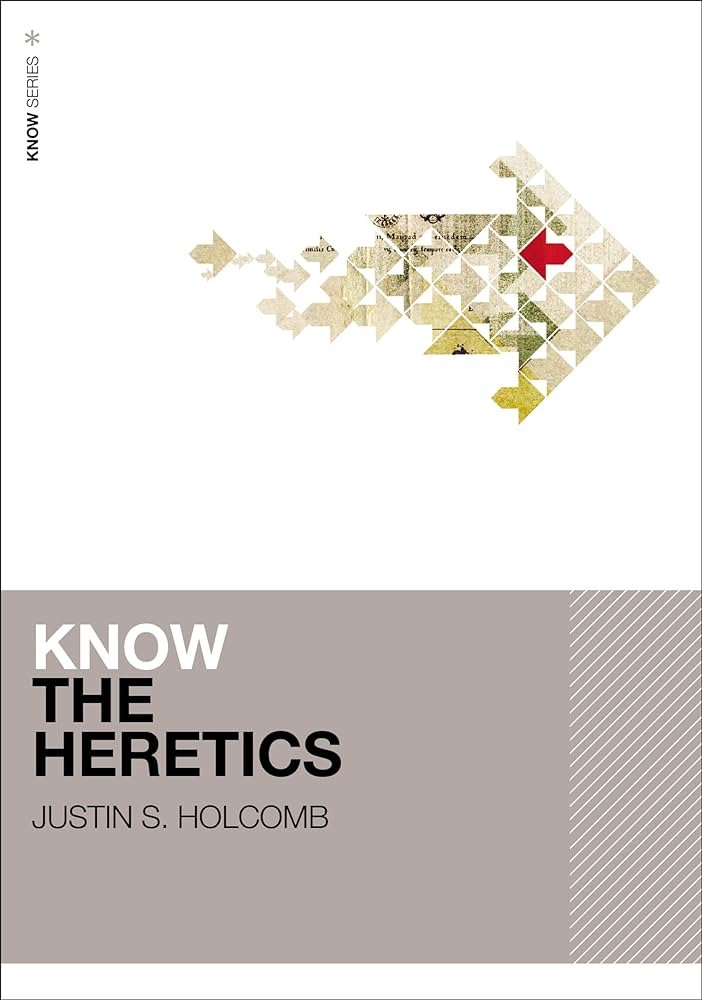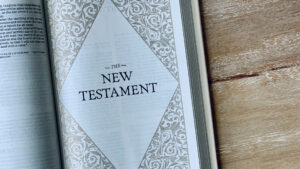Recently I came across a book titled Know the Heretics, by Justin S. Holcomb. If you’re persuaded it’s worth owning after this review, then you might want to check out the larger series on church history that it’s a part of. As we encounter more Christians “deconstructing” their faith, moving away into something more relevant for the modern day, I can’t think of a more pertinent time to read about these important historical figures.
As we encounter more Christians ‘deconstructing’ their faith, I can’t think of a more pertinent time to read this.
Throughout Know the Heretics, Holcomb doesn’t only precisely identify the dividing line between heresy and orthodoxy in the early church, but presents this in a series of stories and discussions on figures that—depending on your persuasion—are either dangerous predators who took advantage of vulnerable people or were merely well-meaning truth seekers, sidelined by institutional religion.
What Is Orthodox Determines What Is Heretical
Holcomb defines orthodox Christianity in a way that I think most people will find appealing: “Orthodoxy is the teaching that best follows the Bible and best summarises what it teaches” (p11). Fundamental to orthodoxy has always been the divinity of Jesus, the meaning of his death and resurrection, and the triune nature of God.
Heresy is a deviation away from the teaching that best follows the Bible and best summarises what it teaches.
There are, of course, many things that we don’t place on the same level; these include the method of baptism, how the church is governed, and music styles in worship. Heresy, according to Holcomb, would be a deviation away from the teaching that best follows the Bible and best summarises what it teaches as primary or fundamental. So the move from inquisitive, experimental thinking to heretic is often one of degrees. The result, when we consider a teaching to be heretical, is we can no longer recognise it as consistently, cohesively biblical.
But how does one recognise when it’s heresy and when it’s merely a different interpretation?

Know the Heretics
Justin S. Holcomb
Know the Heretics
Justin S. Holcomb
There is a lot of talk about heresy these days. The frequency and volume of accusations suggest that some Christians have lost a sense of the gravity of the word. On the other hand, many believers have little to no familiarity with orthodox doctrine or the historic distortions of it. What’s needed is a strong dose of humility and restraint, and also a clear and informed definition of orthodoxy and heresy. Know the Heretics provides an accessible ‘travel guide’ to the most significant heresies throughout Christian history.
Orthodoxy and the Desire to Honour God
Holcomb responds to that question in a fantastic way. He states that the Creator has chosen to reveal himself and live with us, and it would be right to respect and honour those actions. Our views of those actions are largely a result of the struggle between orthodoxy and heresy.
The Creator chose to reveal himself, and it would be right to respect those actions.
Heresy can arise from anywhere, from church leaders and thinkers trying to navigate the differences between the Christian religion and the other beliefs in the world around them; to young and zealous Christians getting bad answers to good questions; and wealthy or politically connected congregants abusing their influence to lead their church in a certain direction. Generally, however, heresies tend to stray from the original message of the gospel, clarity around Jesus’ divinity, how God speaks to humanity, and God’s intent for the world.
Be Very Cautious with the Label: Heretic
That being said, what Holcomb does well is also expose where the institutional church got it wrong and labeled innocent questioners or perhaps dissidents as heretics and then treated them harshly or even violently. There is no assumption that the institutional church was always correct at every turn – in fact, there was a significant period of history in the early centuries where it got some central aspects of the Gospel wrong! But you can read more about that in the book.
There is no assumption that the institutional church was always correct at every turn.
Holcomb does well to advise the reader to keep in mind that there is a line between asking genuine questions about theological matters and then abandoning one’s beliefs for something altogether different. Does that sound familiar? It’s all over our screens and feeds today – famous Christian rock musician or podcaster or author deconstructs faith, abandons church, whatever. Maybe it’s not the famous, maybe it’s the former Christians in our families or friendship circles. The ones who asked questions and never got an answer they liked, or maybe they asked questions but they’ve always been looking for a way to get out of the faith.
Ancient Heresies Keep Reappearing
In Know the Heretics, Holcomb covers some of the most famous alternative thinkers in the church, from Arius to Marcion, as well as many others you may still learn from, such as Socinus and Mani. But no matter the name or the thinker, and how far back in church history they lived, you will almost certainly recognise what they teach in certain places today. This makes books like Holcomb’s hugely important for the contemporary church.
Church history is not irrelevant. Nor is a considered study of the heretics.
Church history is not irrelevant and dated. Nor is a careful, considered study of the heretics. We can learn much from their theological drift, even their total compromise. That is, by studying theology gone wrong we can avoid similar errors and mistakes. Simultaneously, we can benefit from observing how not to hand theological disagreement and controversy.














